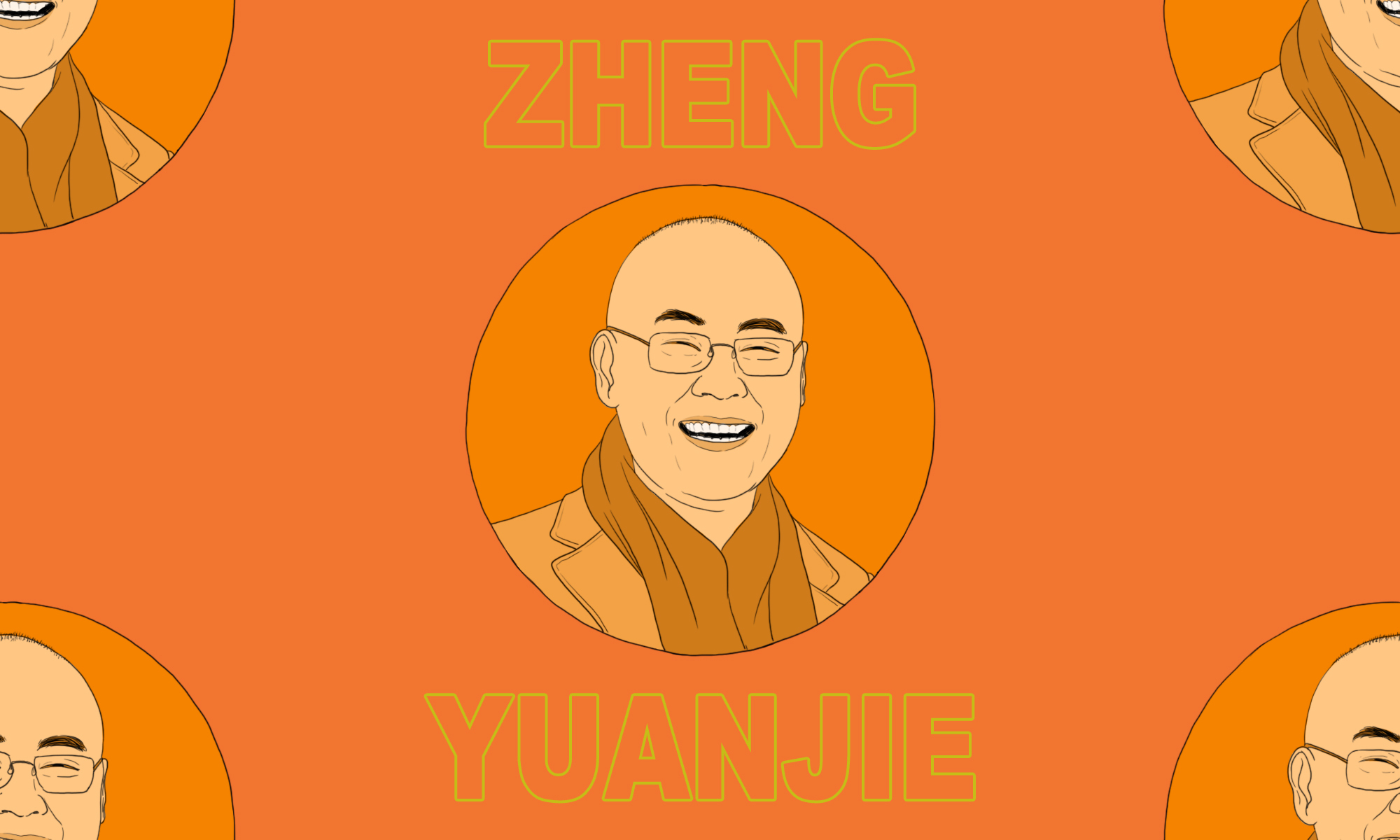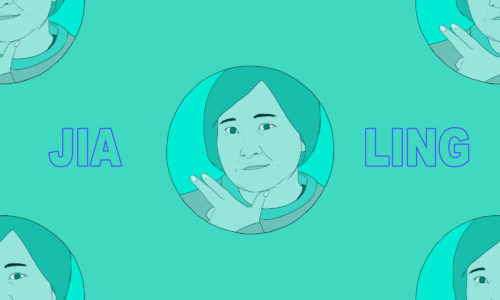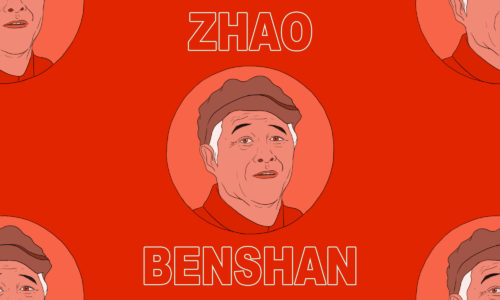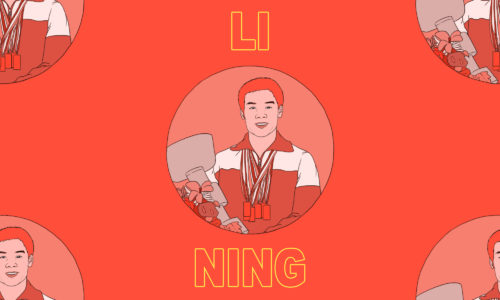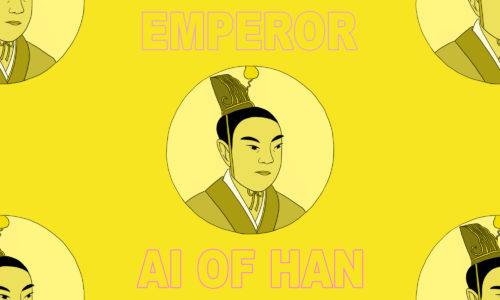China’s most famous children’s author harbors an old school grudge. In 1966, he was assigned by his fourth-grade teacher an exercise on why “the early bird catches the worm.” This was not a comprehension paper or an opportunity for creative writing, but a way of knocking in the axiom that “punctuality = good.” Zheng Yuanjie’s response was a paper titled “the early worm gets eaten by the bird,” arguing some animals have to lie in if they want to survive. This argument, though rational and intelligent, was little suited to a school in the grips of the Cultural Revolution. His teacher made him stand at the front of the room and say, 100 times, “I am the least promising person in this class.” Having said it around 70 times, he couldn’t bear it any longer, letting off a firecracker he’d hidden in his uniform. He was expelled, and would only continue his education at home, with his father.
From this point forward, Zhèng Yuānjié 郑渊洁 has believed the Chinese education system encourages conformity rather than free-thinking. He has since spent decades campaigning against it.
Who is Zheng Yuanjie?
A writer who topped the Chinese Writers’ Rich List in both 2009 and 2012, with an annual income of 26 million RMB ($4 million) in the latter year. “Despite only having an incomplete primary school education, his works have conquered countless young readers,” marveled Xinhua in an article from September 2020.
Although he didn’t make the crossover to China’s latest young generation, the vast majority of Chinese over 15 and under 30 went through primary school reading or watching his tales — of the mischievous little boy Pipi Lu and his studious twin sister Lu Xixi on their journeys to faraway lands, and of Shuke and Beita, the industrious tank-driving and helicopter-flying mice. According to the Beijing Daily, 30,000 copies of Pipi Lu-themed stories are sold in China every day. Not for nothing is Zheng known by some as “the King of Fairy Tales.”
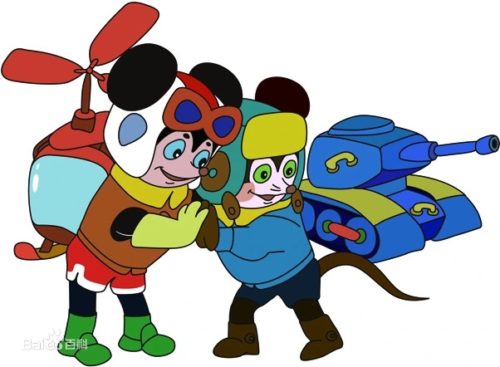
He’s a Hebei native, born to an army family in Shijiazhuang in 1955, moving to Beijing with them in 1961.
Zheng always thought a little differently to his classmates, but has described himself as lacking ambition. In second grade, while other children wrote about how they wanted to be scientists or PLA soldiers, he earned praise from the headteacher for his essay “I want to be a dung collector when I grow up.” He’d been inspired by a manure worker upheld by the CCP at the time, named Shí Chuánxiáng 时传祥.
In 1966, the Cultural Revolution closed his school, and he ended up at a “May 7th” cadre school in rural Henan, the institution he would be expelled from for his free-thinking streak. He never went to school again. “My highest diploma is my driver’s license,” he joked to Southern Weekly.
By 1970, Zheng had joined the army at 15, working at an airbase in Nanchang. Even there, he was an impish troublemaker, once bringing a sparrow onto a plane which then disappeared. The entire plane was disassembled in the hunt for the missing bird, and Zheng was harshly criticized, according to China Daily.
After five years in the army he moved to factory work. At the age of 21 he started to fall on hard times, abandoned by his girlfriend on the advice of her parents when he refused to take a college exam. “I thought I could masturbate instead of getting a wife, but later found out I didn’t like that very much,” he told Southern Weekly. He indeed needed a stable source of income if he wanted a woman to marry him. Upon hearing that publishing houses would pay well for stories, he began writing his own and sending them off. He was rejected endlessly, but didn’t give up, finally getting a poem published in a Shanxi magazine called Fenshui.
Zheng became a writer for Children’s Literature (儿童文学 Értóng wénxué), creating his most memorable characters between 1981 and 1982. Perhaps the most successful was Pipi Lu, a schoolboy with an average report card but a very big heart, who would go on magical adventures with his sister Lu Xixi. “He is curious about everything and later encountered many supernatural events,” says one online profile of Zheng. “Boys love Pipi Lu because they can relate to him, while girls all dream of having a brother like him.” One editor told Zheng that since publishing one of his extra-long stories, circulation had risen by 100,000 copies.
But when Zheng asked for a pay raise, the editor-in-chief abruptly refused. So it was that in 1985 he founded the King of Fairy Tales (童话大王 tónghuà dàwáng) magazine, publishing his (and only his) new stories every month. At its peak, the magazine boasted a circulation of 1 million copies and was read by millions more. That a one-man literary magazine could reach so many and survive for 36 years is a remarkable achievement.
Like their creator, his characters were mischievous, good hearts easily led astray. Shuke is tempted into eating the honey he is meant to transport to help a colony of bees, while Pipi Lu gets a sentient car to do his classmates’ homework.
These characters stood alongside young readers who found the adult world strange, a friendly voice saying to them, “It’s not just you.” “He was laughing at the hypocrisy of the adult world,” says Shè Míng 麝明, an artist who claims to have been inspired to creative and alternative thinking by Zheng’s work. “He encouraged children to be themselves, to not conform and to fight against the brainwashing of teachers and parents.” One Pipi Lu story has the boy upset at how, when discovering he is able to make friends with a caged tiger who shares his sense of loneliness, all the world seems intent on rescuing him from his new friend, when no one had ever come to help Pipi Lu when he was sad and lonely. The tiger is eventually shot and many important people get credit for their “bravery.”
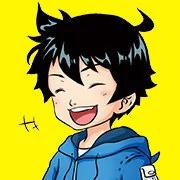
There was something special in the way he conveyed adult themes, educating children about society with an engaging mini-lesson. This included gender equality, a theme rarely discussed in children’s books of the time. One WeChat article argues that Lu Xixi taking her mother’s name was highly “avant-garde” for the 1980s. Indeed, in the 1990s she rails against marriage licenses (“A contract without a term is an invalid contract. But there is no deadline for marriage contracts”).
Pipi Lu Gives You 100 Lives teaches children how to identify sexual assault or abuse, while Pipi Lu and 419 Crimes educates them on all sorts of felonies, from theft to rape, illegal hunting self-inflicted wounds in wartime.
Zheng is also very comfortable talking about sex (he even bought his son a box of condoms for his 18th birthday), discussed in his books in a straightforward manner, when many parents still find the subject too embarrassing to explain to their children. “Where Are You From, My Friend” contains subtle erection jokes and describes a prince with a special “J” key and a princess with a locked miniature palace. “After the princess is 18 years old, there will be a prince whom the princess would like to bring his key to open the palace, so the prince and princess will be happy.”
But not everyone was happy. The most common criticisms of Zheng’s stories are his attacks on the education system, his occasional mocking of public officials like the police, tackling serious subjects at too early an age. The final straw came in the early 2000s, when Zheng was experimenting with fantasy for adults. CCTV’s Legal Report attacked his stories as “unsuitable for children.” His magazine was banned in some schools, and a panicked Zheng published no new material in King of Fairy Tales until 2004.
Indeed, his stories could get quite dark. Take “the Ruby Apartment,” about a man who can’t get company housing for his family of six but is able to shrink down and build a doll-size house for himself and his family. Due to a series of miscommunications, the man learns a boy has dropped the house in a fish tank, drowning his entire family. “The Adventures of Shuke and Beta” ends with the mice going off into space, without knowing a day up there is one Earth year. They return to ruined homes, everyone they ever knew long dead. “I was shocked when I read it. I couldn’t even cry and didn’t go out for days,” says She Ming.
Zheng takes great care to keep in contact with his readers. In the 1990s he bought up 10 apartments in Beijing just to store 1.8 million letters from his fans — he tried to reply to as many as possible with jokes and life advice. “I guess at the end of the day it’s just a matter of opening a museum and putting these letters on display,” he told Red Star News. With his aging fanbase’s digital migration he has become a very active blogger on Weibo, old fans flocking to ask his advice, and (as reported by Chaoyang Traphouse) often getting eccentric replies.
He has also had issues with the writing establishment, not mixing with other literary circles. He withdrew from the Beijing Writer’s Association in 2009 and the Chinese Writers Association in 2010, essential stables for any Chinese author, saying they were based around greed rather than serving their members.
Copyright has also been a top priority for Zheng, campaigning so hard he received an award from the World Intellectual Property Organization. He is (in)famous for fighting lawsuits against companies who have copied his plots or used his characters to sell toothpaste, pork, underwear, etc. It was a difficult start to protect his IP rights when the magazine was in its early stages. “Every issue of King of Fairy Tales was published with a lawyer’s statement, and young readers all over the country were my ‘undercover agents’ who tipped me off about piracy,” he told Red Star News. He sued Pinduoduo in 2018 for marketing pirated versions of his work, and recently managed to win a drawn-out court case to get the Nanjing Shuke Beta Pet Products Co. Ltd. to change its name.
Zheng is still prolific, likening creativity to a drug he can’t wean himself off, writing 4,000 words every day from 4:30 to 6:30 in the morning at the desk of one his four different studies, each named after one of his most famous characters.
Compared to the perfect, rule-following children of previous children’s books, Zheng’s characters are all, well, naughty. They sometimes disobey adults, get into trouble, or cannot resist doing things they’re not supposed to do. But instead of being told Pipi Lu is a bad example, Zheng makes him relatable and likeable. They are characters any child could get behind, learning in the process that it is OK to make mistakes, but also discovering the adult world through the eyes of characters they can understand.
Ironically, a man with only four years of education may have been one of the best teachers in China.
Chinese Lives is a recurring series.
